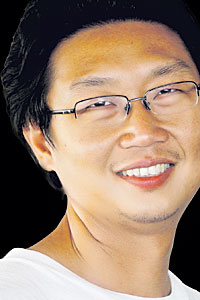After 25 years as a reporter, I am going to retire tomorrow.
It is not a total retirement, by the way. I just decided to leave this beloved journalism job in order to finally spend life in the place I belong, and run a tiny business I've dreamt of for years, before I'm too old to do it.
After years of planning, saving, investing, developing and solving problems, I realised that my retirement plan was not too far out of reach. I hope it is strong and secure enough to get through the fast changing world of the digital and robot era.
In most countries, early retirement is not a big deal. A retirement plan is quite common. But it is quite a new concept in Thailand -- the country that is about to become a fully aged society in years ahead.
A survey by the National Statistical Office reported in 2014 that a handful of Thai people have a retirement plan. Less than 5% of retirees have a pension. Around 4% rely on the interest of their cash deposit or selling their assets. One third of them are forced to continue working. More astonishing is 36.7% of old people in Thailand get pension paid by their kids.
Most Thai people think retirement is something too far to reach. For some young people, they know that saving for their pension is important, but they always believe that they still have plenty of time to save. Finally, when they become an adult with more responsibility and burden, they realise that their chances to save are getting slimmer.
Moreover, according to a survey conducted by the World Bank, most older people in Southeast Asia think it should be the government who takes care of them through different entitlement programmes. They have a mindset that it is not the responsibility of the retirees to prepare and take care of themselves.
On the other hand, retirees in developed countries, like Singapore, Taiwan, and South Korea, think it is their own responsibility to take care of themselves in old age.
Thai people have a different way of thinking about retirement. Especially in conservative families, they still believe adult children should take care of their parents when they get too old to work. So most retirees leave this burden to their descendants, but the situation is changing.
People in big cities find themselves living in rapidly modernised big cities with dramatic inflation. Free vegetables and low cost of living disappear among this urbanisation. The price of land and houses skyrocket, and so does the cost of food. Making ends meet on a daily basis is hard enough, not to mention a pension for their parents.
Especially when companies place part of their employees' salary into a retirement account, some employees complained that such saving can kill them right away.
Some years ago, Thai people began to realise that the country was becoming an ageing society. This means there will be more old people, more retired people and if they fail to start saving earlier, that could mean a huge burden ahead. Many financial institutes have warned that a retiree should save at least 6 million baht each if they want a normal standard of living 25 years into retirement. Such a figure has shocked many old employees that never set their plans.
Numerous financial packages and investment plans for retirement have been launched. For those who own houses, banks are offering reverse mortgages. However, for those who do not have any saving or assets, real retirement remains too far to reach.
It may take a while to change Thai people's mindset about retirement. However, laying a good retirement plan is not that difficult if you start it right and start early. It is like building a house or a fruitful garden for your long-term harvest. Once you make it, you can enjoy it for a long time.
Good luck, everyone.
Peerawat Jariyasombat is a travel writer for the Life section of the Bangkok Post.
